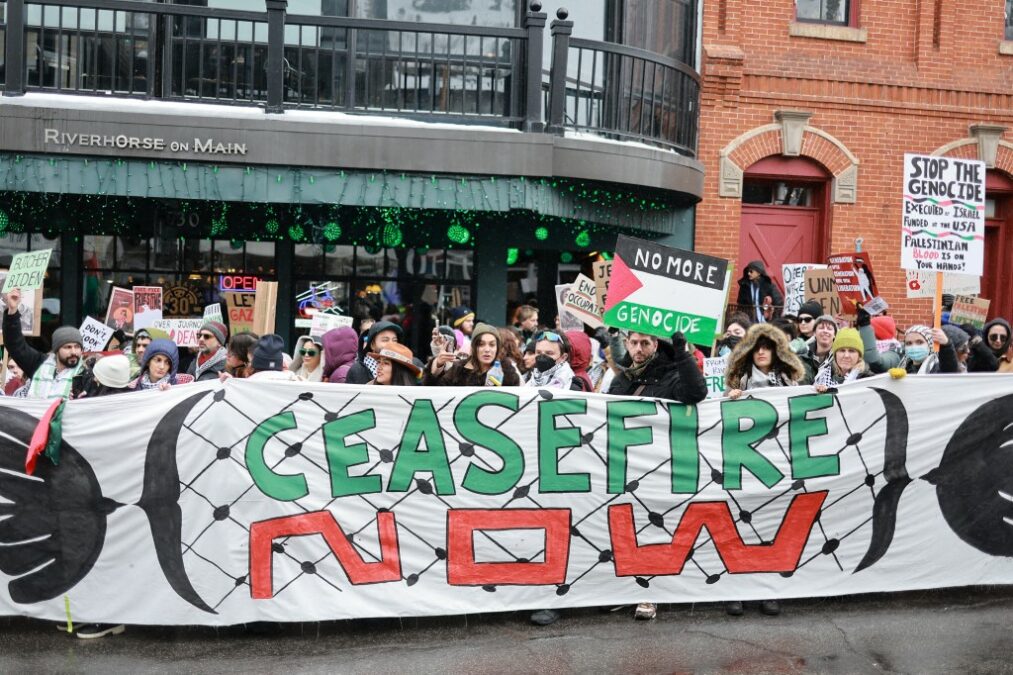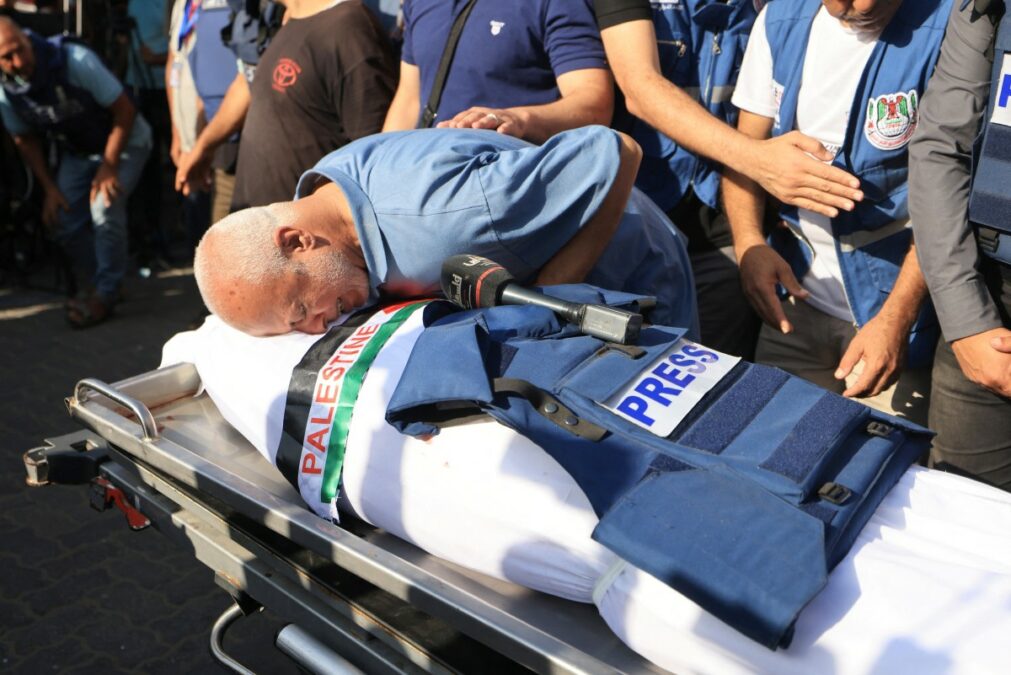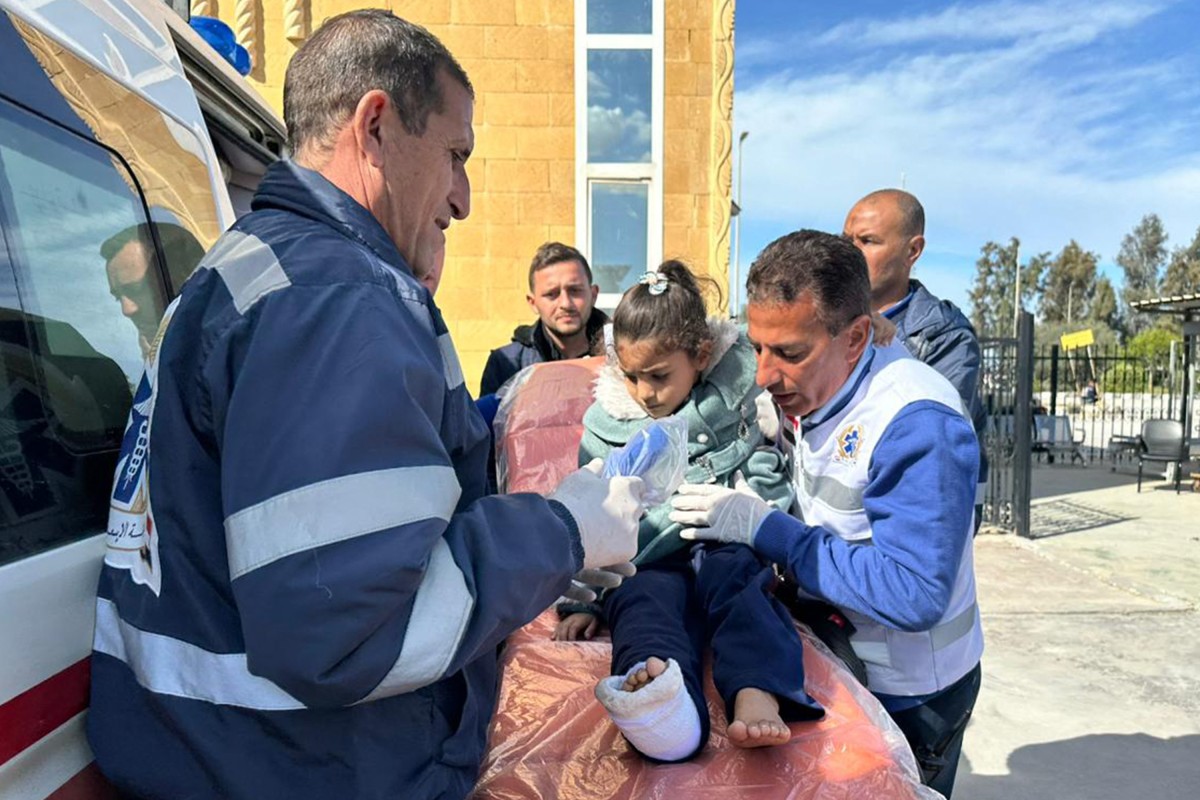Jerusalem/Dubai — Mediators pushed on with efforts for an Israel-Hamas ceasefire as fighting raged in the besieged Gaza Strip on Thursday, deepening a dire humanitarian crisis.
The Qatar-based leader of Hamas, Ismail Haniyeh, was expected in Cairo on Thursday or Friday for talks on a proposed truce.
The group was reviewing a proposal for a six-week pause in its war with Israel and a hostage-prisoner exchange, a Hamas source told AFP, days after US, Egyptian and Qatari mediators met in Paris.
According to the health ministry in Gaza, 119 people were killed in the latest night of strikes, while aid and health workers have for days reported heavy fighting.
“There is a massacre taking place right now,” said Leo Cans of international aid group Doctors Without Borders.
The UN also reported heavy bombardment across Gaza, particularly in Khan Yunis, while it said 184,000 more Palestinians from the city had registered to receive humanitarian assistance after fleeing their homes in recent days.
More than 30,000 displaced people in schools around the city’s Nasser hospital are facing a lack of food, water, medicine and baby formula, said health ministry spokesman Ashraf al-Qudra.
Three-stage plan
As Qatari and Egyptian-led mediation efforts intensified, Haniyeh was due in Cairo to discuss a truce proposal thrashed out in Paris at the weekend with CIA chief William Burns.
A Hamas source told AFP the three-stage plan would start with an initial six-week halt to the fighting that would see more aid deliveries into the Gaza Strip.
Only “women, children and sick men over 60” held by Gaza militants would be freed during that stage in exchange for Palestinian prisoners in Israel, the source said, requesting anonymity due to the sensitivity of the talks.
There would also be “negotiations around the withdrawal of Israeli forces”, with possible additional phases involving more hostage-prisoner exchanges, said the source.
Israel’s offensive has killed at least 27,019 people in Gaza, most of them women and children, according to the health ministry in the Hamas-run territory.
The UN Conference on Trade and Development said tens of billions of dollars would be required to rebuild Gaza, which “currently is uninhabitable” as half its structures are damaged or destroyed
Aid access –
Israeli Prime Minister Benjamin Netanyahu has ruled out withdrawing troops from Gaza and has repeatedly vowed to destroy Hamas.
Netanyahu has also opposed releasing “thousands” of Palestinian prisoners as part of any deal.
With scores of Israeli hostages still trapped in Gaza, there has been mounting criticism of Netanyahu’s government that has triggered street protests and calls for an early election.
For people in Gaza, access to aid has been further hampered by a controversy surrounding the UN agency for Palestinian refugees, UNRWA, after Israel accused several of its staff of involvement in the Hamas attack.
The claims last week saw several donor countries, led by key Israel ally the United States, freeze funding for the agency.
United Nations chief Antonio Guterres told a UN committee he had “met with donors to listen to their concerns and to outline the steps we are taking”.
Netanyahu told a meeting of UN ambassadors in Jerusalem that UNRWA had been “totally infiltrated” by Hamas and called for other agencies to replace it.
UNRWA chief Philippe Lazzarini said that “if the funding remains suspended, we will most likely be forced to shut down our operations by end of February not only in Gaza but also across the region”.

Regional tensions
The war’s impact has been felt widely, with violence involving Iran-backed allies of Hamas across the Middle East surging since October and drawing in US forces among others.
The White House blamed the Islamic Resistance in Iraq, a loose alliance of pro-Iran armed groups, for a drone attack that killed three US soldiers at a base in Jordan.
Yemen’s Houthi rebels, part of the “axis of resistance” of Iranian-backed groups, have been harassing Red Sea shipping for months, triggering US and British reprisal attacks.
A missile fired from Yemen hit a merchant vessel, maritime security firm Ambrey said early Thursday, after the Houthis claimed an attack on a US ship.
And an explosion was reported near a ship off the Yemeni coast, British maritime security agency UKMTO said, adding that both the vessel and crew are safe.
The US military said Wednesday a destroyer shot down three Iranian drones along with an anti-ship missile fired by the Houthis. It also said it had conducted strikes in Yemen against 10 attack drones and a ground control station.
British foreign minister David Cameron met Lebanese Prime Minister Najib Mikati in Beirut on Thursday to discuss defusing deadly tensions on the Lebanon-Israel border as the Israeli army reported new exchanges of fire.
Since the outbreak of war between Hamas and Israel, the border has seen near-daily exchanges between Israel and Lebanese militant group Hezbollah, a Hamas ally.
Cameron and Mikati discussed “ways to restore calm in southern Lebanon, as well as the political and diplomatic solution that is needed,” the prime minister’s office said.
‘Support for UNRWA should continue’
Jordanian Foreign Minister Ayman Safadi said after talks with Lazzarini that he “emphasized the immediate need for the international community to support UNRWA, which plays an indispensable role for Palestinian refugees, serving as a lifeline for over two million Palestinians facing an unprecedented humanitarian crisis in Gaza”.
A foreign ministry statement in Amman said that both Safadi and Lazzarini urged countries that have suspended aid to UNRWA to “reconsider their decision”.
“Any reduction in financial support provided to the agency will exacerbate the suffering of the people of Gaza, who are already on the brink of mass starvation,” the statement said.
UN experts decry killing, silencing of journalists in Gaza
UN rights experts voiced alarm at soaring numbers of journalists killed in the Gaza war, decrying an apparent “deliberate” Israeli strategy to silence critical reporting.
“Rarely have journalists paid such a heavy price for just doing their job as those in Gaza now,” the five experts said in a statement.

United Nations reports indicate that at least 122 journalists and other media workers have been killed and many others injured in the Gaza Strip since war erupted there following Hamas’s deadly attacks inside Israel on October 7.
The Palestinian militants also killed four Israeli journalists on October 7, while three journalists have been killed by Israeli shelling on the Lebanese side of their border.
“We are alarmed at the extraordinarily high numbers of journalists and media workers who have been killed, attacked, injured and detained in the occupied Palestinian territory, particularly in Gaza, in recent months,” the experts said.
The independent experts, who are appointed by the UN Human Rights Council but do not speak on behalf of the United Nations, said they had received “disturbing reports that, despite being clearly identifiable in jackets and helmets marked ‘press’ or travelling in well-marked press vehicles, journalists have come under attack”.
This, they warned, “would seem to indicate that the killings, injury, and detention are a deliberate strategy by Israeli forces to obstruct the media and silence critical reporting”.
“Targeted attacks and killings of journalists are war crimes.”
The experts, including the special rapporteurs on freedom of expression, on rights in the Palestinian territories and on extrajudicial executions, also voiced grave concerns that Israel has refused to let media from outside Gaza to enter and report unless they are embedded with Israeli forces.
“The attacks on media in Gaza and restrictions on other journalists from accessing Gaza, combined with severe disruptions of the internet, are major impediments to the right of information of the people of Gaza as well as the outside world,” they said.
They also urged international courts to pay particular attention to this “dangerous pattern of attacks and impunity for crimes against journalists”.

